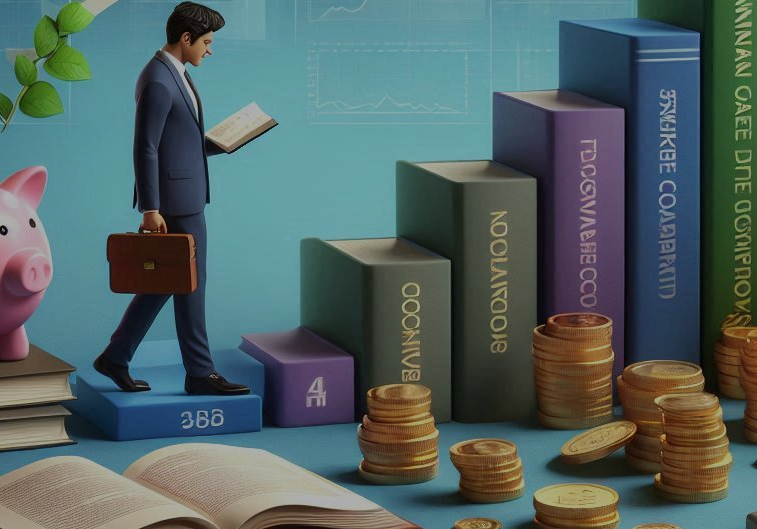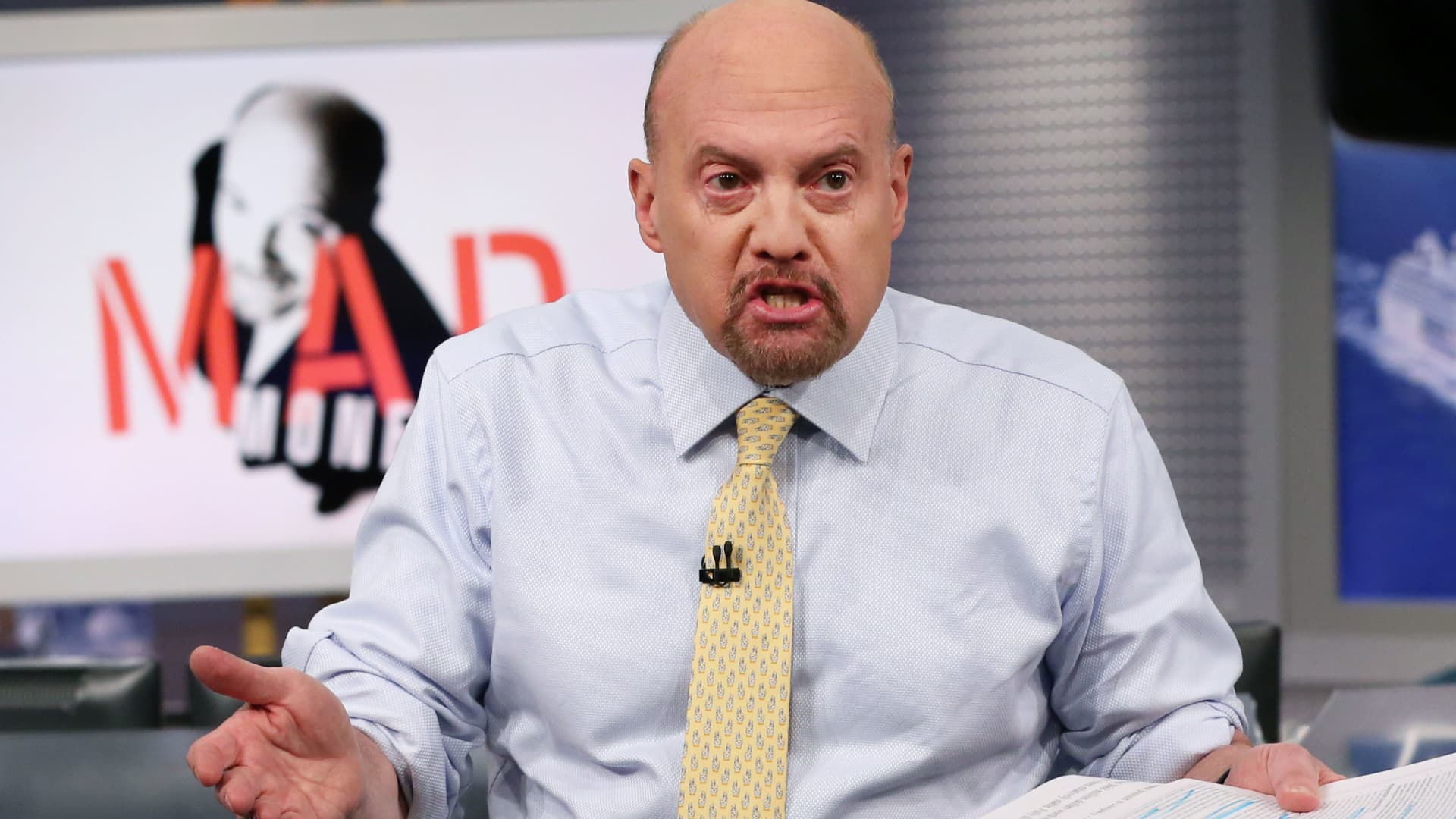 SPY
SPY
 (1.1%)
(1.1%)
 XLV
XLV
 (1.23%)
(1.23%)
 QQQ
QQQ
 (1.53%)
(1.53%)
 VTI
VTI
 (1.17%)
(1.17%)
 GLD
GLD
 (-1.57%)
(-1.57%)
 XLF
XLF
 (1.5%)
(1.5%)
 XLI
XLI
 (0.83%)
(0.83%)
 XLB
XLB
 (0.83%)
(0.83%)
 XLY
XLY
 (0.56%)
(0.56%)
 XLP
XLP
 (-0.09%)
(-0.09%)
 XLE
XLE
 (-1.3%)
(-1.3%)
 XLK
XLK
 (1.8%)
(1.8%)
 XLRE
XLRE
 (0.48%)
(0.48%)
 XLU
XLU
 (0.43%)
(0.43%)
Empowering your investments
Welcome to Spike Invest: Your Guide to Smart,
Simple Investing:
At Spike Invest, we believe that everyone should have the opportunity to invest wisely and grow their wealth, regardless of experience. We simplify the world of investing by focusing on Exchange Traded Funds (ETFs) and Index Funds—two of the most powerful tools for building a long-term, balanced portfolio.
Investing in themes you believe in empowers you
to shape the future while building your wealth
By supporting industries aligned with your passions, values, and
vision, you contribute to positive change
while potentially reaping the rewards of growth in areas you're
truly passionate about.

Key Options for Sharia-Compliant ETFs
Sharia-compliant ETFs are designed to meet the ethical and financial principles of Islamic law (Sharia), making them suitable for Muslim investors. These ETFs follow specific guidelines, such as avoiding investments in businesses related to alcohol, gambling, pork, and interest-based financial services. Instead, they focus on sectors and companies that align with Islamic principles.

An Introduction to ETFs: A Beginner’s Guide to Smart Investing
When you’re just starting out as an investor, the world of stocks, bonds, and mutual funds can feel overwhelming. For many new investors, the idea of picking individual stocks or constantly monitoring the market seems daunting. This is where Exchange-Traded Funds (ETFs) come in—a simple, effective way to invest in a wide range of assets without the complexity.

Investing vs. Speculation: Why Long-Term Investing is Better for Most People
When people think of making money in the stock market, they often imagine two things: quick, high returns and big risks. This thinking confuses two very different approaches to building wealth: investing and speculation. While both can be profitable, they carry distinct risks, goals, and strategies. Understanding these differences is key to making smart financial decisions, especially for people looking to grow their money steadily and securely over time.

The Surge in the AI Sector: Why NVIDIA is Leading the Charge
The Surge in the AI Sector: Why NVIDIA is Leading the Charge In recent years, the technology sector has witnessed tremendous growth, with one particular area standing out as a game-changer: Artificial Intelligence (AI). AI, once a futuristic concept, is now a driving force behind innovations across industries. From self-driving cars and healthcare diagnostics to smart home devices and financial algorithms, AI is transforming how we live and work. The recent surge in AI development has sparked excitement among investors, and one company has emerged as a leader in this space: NVIDIA. In this article, we’ll explore why the AI sector is booming, NVIDIA’s critical role in this growth, and what it means for investors and the future of technology. Why AI is Experiencing a Boom AI’s rapid rise can be attributed to several factors converging at the right time: 1. Increased Computing Power: AI requires vast computational resources to process data, run algorithms, and learn from patterns. Advances in hardware, especially GPUs (Graphics Processing Units), have made it possible to handle the immense processing needs of AI systems. As these technologies evolve, they allow AI models to become more sophisticated and effective. 2. Big Data Availability: AI systems thrive on data. With the explosion of data from smartphones, social media, cloud computing, and the Internet of Things (IoT), there’s more information than ever for AI algorithms to analyze and learn from. This data drives improvements in everything from recommendation engines to predictive analytics. 3. Enterprise and Consumer Demand: Companies across all sectors are seeking ways to leverage AI to improve efficiency, enhance customer experiences, and innovate in their products. AI’s ability to automate processes, make sense of large datasets, and provide insights is creating demand in industries like healthcare, finance, manufacturing, and beyond. 4. Breakthroughs in Machine Learning: Advances in machine learning (ML) and deep learning—subfields of AI—are allowing machines to perform tasks that once seemed impossible, like understanding human speech, recognizing images, and even generating creative content. These breakthroughs are pushing the boundaries of what AI can achieve. Why NVIDIA is Leading the AI Revolution As AI grows, NVIDIA has positioned itself as a dominant force in this rapidly expanding sector. Originally known for its role in the gaming industry, NVIDIA’s Graphics Processing Units (GPUs) have become the backbone of AI computing. But why has NVIDIA emerged as such a key player? 1. GPUs are Essential for AI: While traditional processors (CPUs) handle general computing tasks, GPUs are designed for parallel processing—meaning they can handle multiple tasks simultaneously. This capability is critical for AI and machine learning, where vast amounts of data need to be processed at once. NVIDIA’s GPUs are considered the gold standard in AI research and development, powering everything from self-driving cars to natural language processing models. 2. NVIDIA’s CUDA Platform: Beyond hardware, NVIDIA’s CUDA (Compute Unified Device Architecture) platform has become a vital tool for developers and researchers working on AI and machine learning. CUDA enables software to leverage the full power of NVIDIA’s GPUs, making it easier for developers to build and scale AI applications. This integration of hardware and software has helped NVIDIA carve out a unique and dominant position in the AI ecosystem. 3. Data Center Expansion: While NVIDIA started in the gaming space, the company has rapidly expanded into data centers, which are critical for AI processing. NVIDIA’s A100 and H100 GPUs are now widely used in data centers around the world, powering AI applications for major tech companies and research institutions. These high-performance GPUs are designed to handle AI workloads with efficiency, making NVIDIA the go-to provider for AI infrastructure. 4. Partnerships and Acquisitions: NVIDIA has strategically invested in AI-related partnerships and acquisitions. Its acquisition of Mellanox Technologies (for data center connectivity) and Arm Holdings (for chip design) has expanded its influence in the AI hardware space. By creating an ecosystem that supports AI development from chip design to cloud infrastructure, NVIDIA has secured its place as a key player in the AI surge. What’s Driving NVIDIA’s Recent Surge? NVIDIA’s recent stock surge is directly tied to the explosion of interest in AI. Several key developments have contributed to this rise: - AI Adoption Across Industries: NVIDIA’s GPUs are essential for AI, and as companies in healthcare, finance, automotive, and other sectors integrate AI into their operations, NVIDIA’s hardware is in high demand. The company’s products power the AI systems used in self-driving cars, predictive analytics, and personalized recommendation engines, to name a few. - The AI Arms Race: With AI becoming a competitive advantage, businesses are investing heavily in AI infrastructure to stay ahead. Tech giants like Google, Amazon, and Microsoft are pouring billions into AI research and development, and they rely on NVIDIA’s GPUs to build their AI systems. This “AI arms race” is fueling growth in the demand for NVIDIA’s products. - ChatGPT and Generative AI: The emergence of Generative AI technologies, like OpenAI’s ChatGPT, has driven further interest in AI. These AI models require massive computational resources to operate, and NVIDIA’s GPUs are the industry standard for training and running these large-scale models. As AI continues to advance, NVIDIA’s role in powering these systems solidifies its dominance. - Strong Financial Performance: NVIDIA’s impressive earnings reports have validated its growth story. The company has posted record revenue, driven by AI-related demand, and continues to show strong financial results in key sectors like data centers and gaming. Investors see NVIDIA as a leader in AI, and its stock performance reflects this confidence. What Does the Future Hold for AI and NVIDIA? The surge in AI is not a short-lived trend. AI is expected to continue transforming industries, and NVIDIA’s position as a leader in the field means it will likely benefit from this growth for years to come. - Expanding AI Use Cases: AI will continue to find new applications in areas like healthcare, robotics, and autonomous vehicles. NVIDIA is well-positioned to provide the hardware and software solutions necessary for these innovations. - Growth in AI Cloud Services: As more companies shift to cloud-based AI solutions, NVIDIA’s products will be essential in powering these services. Partnerships with cloud providers like Amazon AWS, Google Cloud, and Microsoft Azure further solidify NVIDIA’s influence in this space. - Innovations in AI Hardware: As AI models become more advanced, the demand for cutting-edge hardware will grow. NVIDIA’s continued investment in R&D ensures it remains at the forefront of AI technology, driving innovation in GPUs and other AI infrastructure. Conclusion The surge in the AI sector is one of the most exciting developments in the technology world, and NVIDIA is at the center of this transformation. With its powerful GPUs, software platforms, and strategic investments, NVIDIA has become the go-to company for AI computing. As AI continues to reshape industries and drive innovation, NVIDIA is positioned to be a key player in the future of technology, making it a stock to watch for investors and a company leading the charge in AI’s next frontier.

The Tax Efficiency of ETFs: Why They're a Smart Choice for Investors
One of the key advantages of Exchange-Traded Funds (ETFs) is their tax efficiency, which can help investors keep more of their returns. Here's why ETFs are more tax-efficient compared to other investment vehicles like mutual funds

Getting Easy Global Exposure with ETFs
ETFs offer a simple and cost-effective way to gain exposure to global markets, allowing you to invest in companies and economies worldwide with just a few trades. Here's how: Broad Global ETFs: ETFs like VT (Vanguard Total World Stock ETF) provide exposure to thousands of companies across both developed and emerging markets, giving you instant diversification without needing to pick individual stocks from multiple countries. Regional and Country-Specific ETFs: If you want more targeted exposure, there are ETFs that focus on specific regions or countries. For example, EFA (iShares MSCI EAFE ETF) focuses on developed markets outside North America, while FXI (iShares China Large-Cap ETF) gives access to leading Chinese companies. Emerging Market ETFs: For those looking to invest in fast-growing economies, ETFs like VWO (Vanguard FTSE Emerging Markets ETF) provide exposure to countries such as China, India, and Brazil, where rapid economic development offers significant growth potential.

My friend asked me to pay $1,600 for her son’s prom-night limo. Has the world gone mad?
“He is handsome and popular and has maintained good grades. My friend wanted to do something special.”

After key conference, here’s how the race to a $150 billion weight-loss drug market is shaping up
As the markets for weight-loss drugs develop, pharma companies are having to adapt in search of the next big thing.

Cows on the roof? How to build a real-estate empire, Barbara Corcoran style.
Real estate mogul Barbara Corcoran has opened up about the controversial methods she used to achieve success —from quirky costume parties to staging publicity stunts.

ESPN renews media deal with professional lacrosse, takes an equity stake in the league
ESPN is renewing its media deal with the Premier Lacrosse League and taking an equity stake in the organization.

Big investors are turning their focus back to U.S. after a run of European outperformance
Attention is turning back to U.S. stocks after a period of underperformance

Strait of Hormuz GPS jamming remains major security issue, tanker CEO says
The Israel-Iran ceasefire held on Tuesday, but GPS jamming in the Strait of Hormuz remains a top security concern for vessels, according to a tanker CEO.

Jim Cramer says AI stocks are climbing as DeepSeek threat recedes on Wall Street
CNBC's Jim Cramer on Tuesday gave his take on the state of the AI race.

CEO says AeroVironment has 'many pieces of the puzzle' for 'Golden Dome' defense system
AeroVironment CEO Wahid Nawabi told CNBC's Jim Cramer the company has capabilities that could help create the "Golden Dome" missile defense system.

S&P 500 nears record as stocks soar, oil sinks and investors throw caution to the wind
Investors naturally fear too much of a good thing, but animal spirits were on full display Tuesday across markets.

A new plan might be taking shape in Washington to help manage explosive U.S. debt
Forget the Mar-a-Lago Accord, the buzzy proposal for how the U.S. might be able to tame its increasingly unwieldy debt while boosting domestic manufacturing in the process.

Coinbase’s stock sees a ‘golden cross.’ Why it may not be a bullish signal to buy.
A bullish “golden cross” appeared in Coinbase’s stock chart, but investors shouldn’t necessarily take that as a buy signal.

Why the small chance of a Fed rate hike could burn investors, says rates analyst
Investors face risks from a possible Federal Reserve interest-rate hike, as well as sharp cuts, in the months ahead, says Columbia Threadneedle analyst.

Trying to save money by turning off the air conditioning? It could cost your relationship.
As temperatures continue to climb throughout the week, cohabitating couples are sometimes left choosing between an astronomically high air-conditioning bill and a cranky partner.

FedEx hopes to save $1 billion this fiscal year. But its forecast is sinking shares.
FedEx Corp. on Tuesday forecast a fiscal first-quarter per-share profit that came in shy of Wall Street’s expectations, sending shares of the package-delivery giant lower in after-hours trade.

People in their 20s should master this speaking skill now, says communication expert: It shows that you're 'supremely confident'
Author and communication consultant Bill McGowan has a tip for early-career professionals to exude confidence and be more memorable at work: Speak slower.

Abbott jumps on RFK Jr. health push — plus, reviews of Eli Lilly's obesity drug data
Every weekday, the Investing Club releases the Homestretch; an actionable afternoon update just in time for the last hour of trading.

Carnival shares pop on earnings beat and raised full-year outlook
Carnival shares climbed Tuesday after the cruise line posted stronger-than-expected second-quarter results and raised its full-year guidance.

Forget $100 billion buybacks. Apple must make a big AI move to turn its stock around
Apple is one of the greatest stock buyback stories in history. It's time to cut it.

Why Apple potentially acquiring Perplexity could be big news for its stock
The tech giant could find a way out of the “penalty box” and cure the perception that it’s an AI laggard.

Small business AI use is lagging, but one firm is channeling Sherlock Holmes and knocking out 'grunt work'
The survey found that only 24% of owners said they are using AI, including ChatGPT, Canva and Copilot in some capacity, compared to 76% who are not.

Back-to-school spending persists despite economic pressure, consumer survey says
Families are not holding back on back-to-school spending this year, despite growing economic pressure, according to a new PwC consumer survey.

Is Circle Internet’s stock too pricey after a 700% rally since its IPO? This analyst thinks so.
Circle Internet’s stock fell after an analyst set a price target that implies an 18% decline.

Tesla’s stock is giving back its robotaxi gains. Here’s what happened.
A technical roadblock got in the way of Tesla shares’ robotaxi run.

Does your 401(k) balance stack up against the new national average?
Vanguard’s annual retirement report sets the mark for what the average person is saving.

How today’s stock market compares to the one during the Arab oil embargo of 1973
The current stock market is even more overvalued.

If something is going to break in the U.S. economy, it will probably happen this summer, BofA Global says
There are likely two distinct paths ahead for monetary policy in 2025, according to a pair of economists at BofA Global.

How a thank you note landed this woman a gig working with a CEO: 'It's a lost art'
Ashley Graef says one executive was so taken by her thank you note that he hired her to ghostwrite for him for several years.

Our data center buildout stocks are hot — plus, 1 name to own despite China questions
The Investing Club holds its "Morning Meeting" every weekday at 10:20 a.m. ET.

Many insurance underwriters won't offer coverage to U.S., Israel, U.K.-linked vessels at any price
Many underwriters in maritime insurance won't offer coverage to shipping vessels linked to the U.S., Israel or U.K. as the Mideast war risk premium spikes.

Home prices fell, but the peak spring selling season was still weak. What’s next?
Builder KB Home cut its outlook for sales, profitability and home prices, as affordability and worries about the economy are keeping demand weak.

We're trimming two stocks to lock in big gains — and would like to sell a third
These moves are aimed at capitalizing on the market's strength this week.

Are annuity fees worth it? Or should I just keep withdrawing money from my savings?
Other than Social Security, what’s the best source of monthly income in retirement? Here’s what annuities can do.

Two ETFs that have beaten value stock indexes with this simple approach
These funds steer clear of typical value metrics that are based on price ratios.

Trump drops the f-bomb at the White House. But can you do the same at your job?
Swearing is becoming commonplace in the U.S., but etiquette experts warn of the risks: ‘It could cost you your job.’

Senate version of Trump’s budget bill would raise the debt ceiling by $5 trillion—what it could mean for your wallet
Senate Republicans back a $5 trillion debt ceiling increase — the largest ever — but experts say it’s unlikely to raise borrowing costs in the short term.

How a gay anti-bullying PSA from the late 2000s became a cult classic
The clip has earned a spot in the cultural zeitgeist — 'It lives rent free in my head,' one viewer said.

Carnival’s stock jumps as strong last-minute bookings fuel another earnings beat
Carnival’s stock was surging to lead the S&P 500’s gainers, as strong last-minute bookings helped fuel an earnings beat and raised the cruise line’s outlook.

I was told I had cancer and had 18 months to live—'almost dying' taught me 7 'hard' lessons about living a happy, regret-free life
After his cancer diagnosis, author and editor Jonathan Gluck was told he had 18 months left to live. Here's what "almost dying" taught him about how to live a happy, meaningful and regret-free life.

McDonald's and Krispy Kreme will end doughnut partnership next month
Krispy Kreme and McDonald's are ending their collaboration for good, saying the deal was not profitable for the doughnut chain.

How DOGE, Trump, Musk and the ‘big, beautiful’ tax bill are missing the real federal waste
Taxpayers are getting hosed, Social Security and Medicare reports show.

Krispy Kreme and McDonald’s end their doughnut partnership, as it didn’t make money
Fast-food giant and doughnut maker scrap their alliance, which rolled out nationally in March 2024, as demand kept falling.

This summer expense could cost you around $200 a month—6 tips to save
Air conditioning costs are expected to rise by 4% this summer, according to the Energy Information Administration. Here's how experts advise to save.

The U.S. gained 1,000 millionaires a day on average in 2024, new report finds
The number of millionaires in the U.S. is growing, but those who are already wealthy are still seeing the fastest gains.

Amazon bringing faster delivery to thousands of small towns and cities
Amazon previously said it would spend $4 billion by the end of 2026 to triple the size of its rural delivery network.

Powell says tariffs likely to boost inflation, mum on future rate cuts
Federal Reserve Chairman Jerome Powell on Tuesday gave little sign of when U.S. interest rates will be reduced again, telling Congress that tariffs are likely to push up inflation and “weigh on economic activity.”

Forget the ‘Magnificent Seven’ — these 7 cheap tech and AI stocks are better buys right now
This mutual-fund manager stays calm through uncertainty — and significantly outperforms the stock market.

Mastercard makes a move toward stablecoins, in an effort to boost mainstream use
Stablecoins have come into greater focus by investors.

I asked AI, Google Flights and a travel agent to find me the cheapest flight. Here’s who won.
More travelers have been using generative artificial intelligence to book trips this year.

Want in on Trump’s newest deregulation play? These energy stocks and ETFs could deliver big gains from uranium’s surge.
When uranium moves, it’s usually dramatic: The last bull market saw prices spike nearly tenfold.

Why falling oil prices could actually push stocks down the well
The S&P 500 does better when crude prices are higher.

More people are treating their investments as a form of savings. Here’s what’s driving them to be ‘long-term greedy.’
An unsteady economy hasn’t shaken retail investors’ optimism about the stock market.

Too complacent? This bank argues markets aren’t bullish enough
Fears of an equity market correction are overdone, posits HSBC

Here are the overlooked ways to play AI, crypto and quantum trends, says this tech investor
Investor Eric Jackson identifies the overlooked companies that can benefit from crypto, artificial intelligence and quantum technologies.

My cousin died before claiming his late father’s $2 million estate. Will I get it?
“His trust named his son as the only beneficiary of his home and had no alternate beneficiaries.”

Four things to know ahead of the U.S. stock-market open on Tuesday
Here are four key things investors should know to start the trading day.

Rajnath Singh heads to China after a five-year gap
Indian National Security Adviser Ajit Doval is also in China for meetings of the SCO, a China-led multilateral group comprising nine permanent members, including India and Pakistan

Brooklyn and Nicola Peltz Beckham find their ‘dream’ home in Beverly Hills for $16 million
The lavish dwelling is just a 5-minute drive from their former home, which they sold for a loss.

Bing Crosby’s longtime California sanctuary sells for $25 million; buyer wants to ‘embrace the legacy of the property’
Crosby’s former California mansion has sold to a buyer who is planning a worthy encore for the iconic property that will honor the singer’s incredible legacy.

Gulf states reopen airspace and resume flight operations
Qatar barred flights from entering its skies as it prepared for Tehran’s attack; Bahrain, the UAE and Kuwait followed swiftly as a precautionary measure

Jensen Huang starts selling Nvidia stock under $865 million plan
Huang disposed of 100,000 shares over a two-day period of June 20 and June 23 for $14.4 million, according to a filing Monday with the Securities and Exchange Commission

RBN Energy executive explains why Iran isn't likely to close the Strait of Hormuz
RBN Energy executive Rusty Braziel told CNBC's Jim Cramer on Monday that he doubts Iran will close off the Strait of Hormuz.

FedEx’s earnings are due. Here’s why analysts aren’t expecting much.
UBS says “cyclical and secular concerns” are in focus for both FedEx and rival UPS.

Treasury yields are falling as investors now see a possible July interest-rate cut by the Fed
Treasury yields are easing — but it isn’t so much a flight-to-safety trade following U.S. strikes against Iran.

WNBA star Caitlin Clark reveals the $10 luxury she won’t pay for: ‘I’m a little cheap’
Many highly paid athletes, including LeBron James, admit to having some pretty frugal behaviors.

Some Carnival Cruise regulars say they’re jumping ship. Why Wall Street isn’t worried.
The cruise line’s parent company will announce second-quarter earnings Tuesday morning, just days after Carnival announced controversial changes to its loyalty program.

How long is the wait for Social Security customer service? No one knows.
The Social Security Administration has stopped publishing key customer-service metrics, which will make it more difficult to track whether performance is improving or eroding over time.

Micron’s stock soared in June. Here’s what investors want to see from its earnings.
The memory-chip maker’s stock is among the S&P 500’s top performers in June, as investors stay bullish on better DRAM pricing and demand for HBM chips.

Shipping costs through the Strait of Hormuz are rising — even as oil prices are dropping. So what happens if Iran closes the waterway?
Tanker operators in the Strait of Hormuz are facing higher shipping and insurance costs, despite a drop in oil prices, as investors wait to see what happens to the world’s most important crude chokepoint after the U.S. bombing of Iran’s nuclear sites.

Palantir could profit from the Middle East conflict. But here’s why Wall Street thinks its stock is overpriced.
The average analyst’s stock-price target implies Palantir’s stock is well overpriced, even though the company stands to benefit from defense and intelligence offerings.

Why oil plunged — and stocks rallied — after Iran’s ‘symbolic’ missile attack on Qatar
There may have been more to Iran’s telegraphed attack on a U.S. base in Qatar than meets the eye, strategists say.

How Fanatics is teaching business acumen to pro athletes
More than two dozen NBA, NFL and NHL players participated in Fanatics' Athlete Immersion Program, featuring prominent CEOs and business leaders.

Fed interest-rate cut in July gains support. What does Powell think?
Is the Federal Reserve suddenly open to cutting U.S. interest rates as early as July? That’s what Wall Street investors want to know when Fed Chair Jerome Powell testifies before Congress this week.

Airlines divert, cancel more Middle East flights after Iran attacks U.S. military base
Airlines diverted flights in the Middle East on Monday after Iran's armed forces said the country launched a missile strike on a U.S. military base in Qatar.

A U.S. strike on Iran wasn’t enough to rattle markets on Monday. Here’s what might change that.
From trade wars to the threat of an actual kinetic war, seemingly nothing has managed to keep stocks down for long this year.

We’re living in ‘end times’ when you can’t retire on $1 million
Inflation is the dry rot that eats away at your dream home while you’re busy making retirement plans.

Strike on Iran, Trump tariffs could drive inflation back up to highest levels in two years
U.S. inflation remained surprisingly muted through May, with limited impact from President Donald Trump’s tariffs. But U.S. airstrikes on Iran’s nuclear facilities over the weekend could contribute to pressures that may send price gains back to the highest levels in two years.

Why this stock-market wizard is 100% invested in the S&P 500 right now — even after the U.S. strike on Iran
Mark Minervini shares what’s worked for him over his long trading career and talks about how to invest in the stock market now.

Jim Cramer says Apple needs to change course — plus, he highlights 2 stocks to buy now
The Investing Club holds its "Morning Meeting" every weekday at 10:20 a.m. ET.

Trump Media’s ‘DJT’ stock jumps, as planned buybacks could cut share count by 10%
Trump Media, the parent of President Donald Trump’s social-media platform Truth Social, announced a $400 million stock-repurchase program, which could reduce the number of shares outstanding by 10%.

Tesla owners can make money by turning their cars into robotaxis, Elon Musk says. This is how it would work.
Tesla’s stock shot higher after Sunday’s launch of the EV maker’s eagerly anticipated — and recently delayed — robotaxi service in Austin, Texas.

Here’s why these analysts see ‘a lot more to go’ for AMD’s stock in the next few years
Melius analysts expect more AI-chip sales as demand grows for running AI models and for AMD’s new offerings to attract hyperscaler and sovereign customers.

3 in 4 couples overspend on their weddings—here's how to stay on budget, according to experts
Overspending on a wedding is almost guaranteed, according to an expert from the Knot, but with some planning and care, you can beat the odds.

20 oil stocks passing a quality screen as investors wonder what Iran will do next
Nobody knows how badly the international oil market might be disrupted by Iran. But if you want to take advantage of the uncertainty, a screen encompassing debt levels and cash flow can limit your risk.

Home sales remain sluggish as some ‘stubborn sellers’ refuse to give in on price
Sales of existing homes inched up slightly in May but remained depressed as buyers shied away from a housing market that features painfully high interest rates and home prices.

Amazon launches second batch of Kuiper internet satellites, taking on Elon Musk's Starlink
Amazon has sent more Kuiper craft into space as it looks to deploy a satellite constellation that rivals Starlink, a service operated by Elon Musk's SpaceX.

Businesses face rising inflation due to tariffs. Will consumers get hit next?
The cost of doing business for U.S. companies rose in June at the second fastest pace in two and a half years, a pair of S&P surveys showed, reflecting ongoing inflation pressures tied to high Trump administration tariffs.

Hims & Hers’ stock plunges. Here’s why Wegovy parent ended its partnership with the company.
Hims & Hers Health Inc.’s stock fell sharply on Monday after pharmaceutical giant Novo Nordisk, maker of the weight-loss drug Wegovy, said it was ending a collaboration with the telehealth-consultation company less than two months after it started.

Fiserv’s stock surges as it teams with Circle to join the stablecoin party
An analyst issues bullish $421 price target for Coinbase’s stock, while Fiserv’s stock moves up as stablecoin products roll out.

These are the areas where markets are complacent and risks lurk
A report by Deutsche Bank highlights where pricing is strange in markets.

Here’s how to ditch your restrictive 401(k) plan and pick your own investments
If you’re worried about this move being too risky, wait until you see the top asset of those already using a 401(k) brokerage window.

‘I’m 49 and have no debt except for a mortgage’: Should I take a $61,000 lump sum or $355 a month for life?
“My S&P 500 investments have roughly doubled every seven years.”

How Trump’s Iran strike just made your stock portfolio great again
Take a close look now at U.S. manufacturers, semiconductor producers, agricultural exporters, cybersecurity firms and defense contractors.

‘Is this normal?’ I’m 40 and inherited an IRA worth $650K. It has grown to $1M over five years. But I had a pro look at my investments and one-third are underperforming.
Have an issue with your financial planner or looking for a new one? Email questions or concerns to picks@marketwatch.com.

Central Banks in Asia are becoming wary of currency intervention
Emerging Asia central banks reduce interventions amid dollar decline, fearing backlash from Trump in trade negotiations.

The U.S. bull market is intact — and a key signal is coming from Tel Aviv, says this strategist
Tel Aviv stock market at record highs suggests investors are looking through the current crisis

‘He doesn’t seem to care’: My secretive father, 81, added my name to a bank account. What about my mom?
“Neither my mom nor I know anything about their finances.”

New Stellantis CEO faces slew of challenges, vows to avoid 'mediocrity'
Antonio Filosa, a 51-year-old Italian native, is taking over as CEO as the automaker deals with fractured relationships, regulatory uncertainty and more.

Four things to know ahead of the U.S. stock-market open on Monday
Here are four key things investors should know to start the trading day.

Paris Hilton snaps up $63 million Beverly Hills mansion once owned by Mark Wahlberg
After losing her Malibu home to wildfires earlier this year, Hilton has picked up a 6-acre spread with an illustrious Hollywood history.

Barack and Michelle Obama’s former Martha’s Vineyard escape sells in just 6 weeks
The gorgeous Martha’s Vineyard getaway where Barack and Michelle Obama used to spend their summers has found a buyer—just six weeks after it was put on the market for $39 million.

